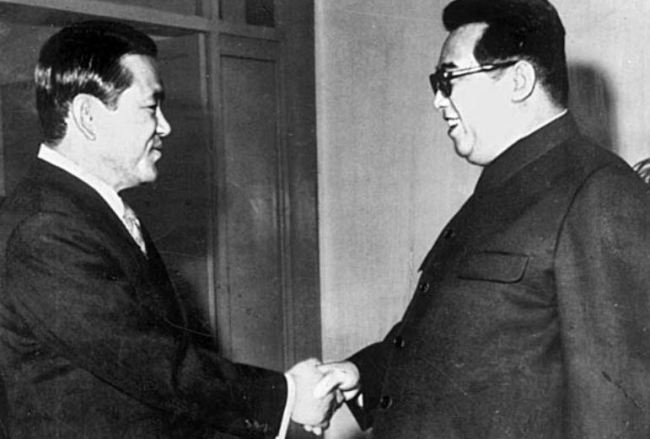As President Moon Jae-in has unveiled a plan to send a special envoy to North Korea, attention is being paid to what purposes South Korea dispatched special emissaries in the past.
Since the 2000s, the South has sent special envoys to North Korea either to prepare for inter-Korean summits or to help resolve North Korea's nuclear issue.
Moon said Thursday during a phone conversation with US President Donald Trump that he will send a special envoy to the North. The main topic of that conversation was the outcome of trips by South Korea by a North Korean special envoy and high-level delegations during the PyeongChang Olympic Games.
Kim Yo-jong, the younger sister of North Korean leader Kim Jong-un, delivered a letter from her brother to Moon on Feb. 10, which included an invitation of the South's leader to Pyongyang at an early date. She visited the South from Feb. 9-11 to attend the games' opening ceremony.
The North has expressed willingness for dialogue with the US, but Washington and Pyongyang still differ over the terms and conditions for talks, as the US wants talks over North Korea's denuclearization.
 |
Former Korean Central Intelligence Agency Director Lee Hu-rak, left, meets with North Korean leader Kim Il Sung on Nov. 3, 1972 in Pyongyang. (Yonhap) |
Before 2000, when the two Koreas held their first summit, the case in point was a secret visit in 1972 to Pyongyang by Lee Hu-rak, then-chief of South Korea's spy agency, to meet with Kim Il-sung, the late founder of North Korea.
When liberal former President Kim Dae-jung took office in 1998, he was active in seeking engagement with Pyongyang and a summit with Kim Jong-il, the late father of North Korea's current leader Kim Jong-un.
In March 2000, Kim sent lawmaker Park Jie-won, then the cultural minister, as a special envoy for discussion over a meeting with the North Korean envoy Song Ho-gyong, the late vice-chairman of the North's Korea Asia-Pacific Peace Committee.
They secretly met in Shanghai to prepare for a summit. In April of that year, they met again and agreed to hold the first inter-Korean summit, in June.
To fine-tune preparation for the summit, the South dispatched Lim Dong-won, then the South's spy chief, in May 2000 as a special emissary to Pyongyang, where he met with Kim Jong-il and other ranking officials.
At that time, South Korea did not make public the sending of a special envoy. The government publicly announced such a move in April 2002 for the first time when Lim Dong-won, an advisor on unification and security, was sent to the North.
Lim was tasked with finding ways to improve inter-Korean ties, which were chilled by US President George W. Bush's tough North Korea policy.
The two Koreas agreed at that time to hold reunions of families separated by the 1950-53 Korean War, but Lim's visit fell short of bringing rapprochement to the Korean Peninsula.
Bush's designation of North Korea as part of the axis of evil heightened tensions between the North and the US.
Their friction intensified due to the North's suspected development of highly-enriched uranium and its pullout from the Treaty on the Non-Proliferation of Nuclear Weapons in January 2003.
President Kim sent Lim as a special envoy again, but he had to return home without meeting with Kim Jong-il.
Former liberal President Roh Moo-hyun, Kim Dae-jung's successor, sent special emissaries to the North to resolve the nuclear standoff.
A trip by Chung Dong-young, then the unification minister, in June 2005 helped the North return to the six-party denuclearization talks.
Under the Sept. 19 accord, North Korea agreed to dismantle its nuclear program in exchange for a security guarantee and energy.
Chung visited the North for a joint pro-unification event marking the fifth anniversary of the 2000 inter-Korean summit. But he was actually a special envoy seeking to resolve the North's nuclear issue.
Roh also sent Kim Man-bok, then the chief of the South's intelligence agency, in August 2007 to deliver a letter from him to Kim Jong-il ahead of the inter-Korean summit in October of that year. (Yonhap)








